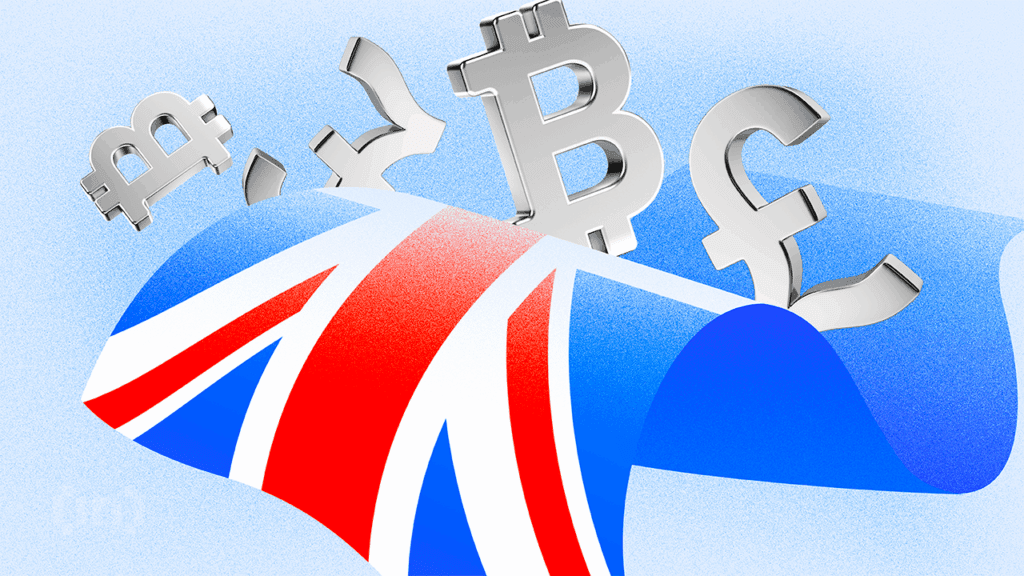The UK trade group is asking the government to include blockchain in its upcoming “Tech Bridge” agreement with the US, warning that exclusions could undermine the UK’s role in setting global financial standards.
Bloomberg reported the appeal ahead of President Donald Trump’s visit to the state.
Sponsored Sponsors
UK lobby groups will increase pressure
In a letter to Peter Kyle’s business secretary on Thursday, a coalition of 12 trade institutions representing finance, technology and crypto urged that decentralized ledger technology sits as the “core strand” of the UK US Technology Bridge. The group also sent a letter to the economic secretary to Treasury Secretary Lucy Rigby, who oversees the government’s cryptographic approach.
“Removing digital assets from Tech Bridge in the UK will be an opportunity to miss,” the letter states. “In the Middle East and Asia, Britain is at stake on the sidelines, and others, especially in the Middle East and Asia, it is at stake to set standards that will shape the future of finances.”
Trump accepts digital assets for his second term and travels with a delegation of technical leaders, including Open Sam Altman and Nvidia’s Jensen Fan.
The Financial Times reported that PACT outlines complementary partnerships across artificial intelligence and quantum computing. A UK government spokesman, while being called “natural partners” of the US and the UK, declined to comment on the “hypothetical announcement.”
Stubcoin and tokenization move to the front
In their letter, the group flagged stubcoin and tokenization as strategically important to both economies. Tokenization allows assets such as bonds and bank deposits to be mapped to blockchain ledgers, reducing payment cycles and increasing investor access.
Stable coins, usually locked in Fiat and backed by liquid reserves, continue to push them up to mainstream finance.
Sponsored Sponsors
The UK has begun filling its rulebook. In April, HM Treasury issued the 2025 CryptoAssets Order 2025, bringing exchanges, custodians and issuers to the boundaries of financial services and market law.
The Financial Conduct Office has launched discussions on licensing for issuance of Stablecoin and custody of cryptocurrencies, and has also outlined the Prudential regime of cryptocurrency companies covering capital and action.
Congress is considering property (such as digital assets) bills. This considers recognizing crypto as property and expanding oversight into custody and lending. Together, these measures aim to provide legal certainty while bringing the UK to new global standards.
What is at risk on Tech Bridge?
The group in the lobby sees it as an opportunity to adjust standards with Washington at pivotal moments. In July, Trump signed a Fiat-backed stubcoin landmark US law, giving the issuer a federal framework. Supporters argue that without comparable clarity, the UK could lose its position in the US, the EU’s MICA regimes, and pilots in Asia and the Middle East.
Global organizations continue to seek modernization. The Financial Stability Committee seeks cheaper, faster cross-border payments with an average cost of 6.4% for a $200 transfer. International banks’ settlements claim that stubcoins, tokenized deposits and central bank digital currencies are likely to coexist, which increases interoperability premiums and shared protection measures.
Former Prime Minister Rishi Snack pledged in 2022 to make the UK a “global hub of crypto asset technology,” but a comprehensive regime is still underway. That gap helps explain the current push. Without adjustment, the group warns that UK companies could face “a fragmented regulatory environment, reduced access to deep transatlantic markets and increased competitiveness.”
Industry media has also recorded headwinds across the country. Beincrypto reported that the tax rules paid in 2026 require a platform for reporting customer data to HMRC under the OECD CryptoAsset reporting framework, adding compliance and privacy concerns. Another analysis reported that while the FCA plans to review these restrictions, restrictions on retail access to notes traded on crypto-linked exchanges delayed adoption.
For now, Tech Bridge continues to be a test of the UK’s ambition to form digital asset standards rather than importing them. By including blockchain, London shows that in line with Washington’s policy turn, the UK intends to compete on a tokenization and programmable money railway.


